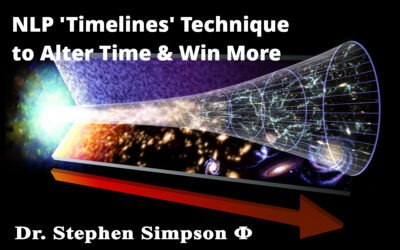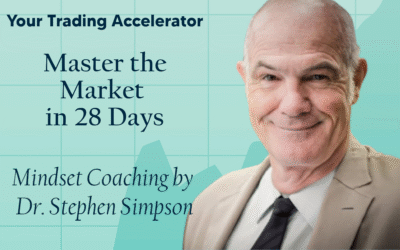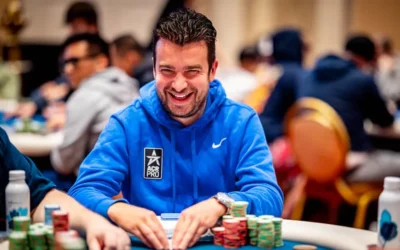FIND FLOW AND THE ZONE FASTER AND STAY THERE LONGER.
My last post proposed that creativity was our most precious gift, and closely related to the flow state. I had so many comments and questions about flow that I felt it would be a valuable subject to revisit.
I have written about flow so many times, not least in my book Push at open doors. I published this book on Amazon in 2012 and it was given five-star ratings by readers. Push at open doors is now only available from my website as a PDF e-book, and this is the link for those that are interested to know more.
I have updated and expanded upon many of these ideas in my latest book Get lucky now! I hope to have news of a possible publication deal shortly. So back to the game changing subject of flow. Flow is also known as the zone, and is the mental state that is the goal of creative people. We have all experienced it at least once in our lives, and it is a wonderful experience. The problem is that once is never enough. We then we want to learn how to find the zone quickly and stayed there longer. This last sentence is a summary of pretty much all of the work I do with myself and with my clients.
Flow is characterised by complete absorption in what one does. Named by Mihály Csíkszentmihályi, the concept has been widely referenced across a variety of fields, and his book Flow: the psychology of optimal experience, is one of the top five books that I have ever read.
Flow is a single-minded immersion and represents perhaps the ultimate experience in harnessing the emotions in the service of performing and learning. The hallmark of flow is a feeling of spontaneous joy, even rapture, while performing a task. It is a deep focus on nothing but the activity, least of all oneself or one’s emotions.
Flow is so named because during Csíkszentmihályi’s 1975 interviews several people described their “flow” experiences using the metaphor of a water current carrying them along.
Csíkszentmihályi noticed that artists, especially painters, became so immersed in their work that they would disregard their need for food, water and even sleep. The theory of flow was greatly used in the theories of Maslow and Rogers in their development of the humanistic tradition of psychology, and these are names that appear regularly in my posts.
For the most part (except for basic bodily feelings like hunger and pain, which are innate), people are able to decide what they want to focus their attention on. However, when one is in the flow state, they are completely engrossed with the one task at hand and, without making the conscious decision to do so, lose awareness of all other things: time, people, distractions, and even basic bodily needs because all of the attention of the person in the flow state is on the task at hand. We can only process about 7 thoughts or 110 bits of information per second, and so there is no more attention to be allocated.
Not only does flow lead to optimal experience, but also to a sense of life satisfaction overall. People in flow are happy. So are creative people, and intuitive people are happy too, so surely there are lessons here worthy of serious thought.
A flow state can be entered while performing any activity, although it is most likely to occur when one is wholeheartedly performing a task or activity for intrinsic purposes. Passive activities like taking a bath or even watching TV usually do not elicit flow experiences.
Some of the challenges to staying in flow include states of apathy, boredom, and anxiety, so these are mental states to be avoided at all costs.
So what kind of people are more likely to achieve flow than the average person? Csíkszentmihályi identified several personality traits that include curiosity, persistence, lack of ego, and a high rate of performing activities for intrinsic reasons only. He described this as an autotelic personality. This reminds me immediately of some of the qualities of lucky people that I identified in my book Get lucky now!
Musicians, especially improvisational soloists, experience flow while playing their instrument. Research has shown that performers in a flow state have a heightened quality of performance as opposed to when they are not in a flow state.
Not only did their mental state change, but so too did their physiology. For example when a pianist entered the flow state, heart rate and blood pressure decreased and the major facial muscles relaxed. This research further emphasised that flow is a state of effortless attention, leading to an increase in performance of the pianist during the flow state improved.
Groups of drummers experience a state of flow when they sense a collective energy that drives the beat, something they refer to as getting into the groove or entrainment.
Many athletes describe flow as being in the zone, and again link the effortless nature of their performance to posting great results.
For millennia, practitioners of Eastern religions such as Hinduism, Buddhism, and Taoism have recognised the importance of the flow state and the discipline of overcoming ego as a central feature of spiritual development.
At a different level flow is one of the main reasons that people play video games. The primary goal of games is to create entertainment through intrinsic motivation, which is related to flow. Which means that without intrinsic motivation it is virtually impossible to establish flow.
Developers of computer software reference getting into a flow state as being “wired in”. Stock market operators often use the term “in the pipe” to describe the psychological state of flow when trading during high volume days and market corrections.
Professional poker players use the term “playing the A-game” when referring to the state of highest concentration and strategical awareness. When I catch up with my poker clients after a tournament my first question is usually, “How is your game?” The reply is often “to be honest I played my B-game today.” So the rest of the conversation is governed by identifying what it will take to move to their A-game.
Conditions of flow play an extremely important role in the workplace. Providing flow conditions at work are likely to provide increasing workplace satisfaction and accomplishment, thereby boosting corporate profits. This is a win-win situation for all parties.
Hypnosis is also a flow state for both the therapist and a client. Politicians and the advertising media know this too, and so their creative messages are targeted at your unconscious mind. Keep this in mind because this will help vaccinate your thoughts against this covert persuasion and manipulation.
In my last post about creativity I suggested that introducing more creative opportunities in schools, prisons, hospitals, and in the workplace would likely bring out the best qualities in people rather than the less positive thoughts that often emerge from our murky reptilian brains. More flow = more creativity = more happiness.
Something for us all to think about. So where will you find your flow?
This post is only a brief summary of flow, and many of these comments have been posted in Wikipedia. This is a link for further illuminating information about flow, and there is much of it. Read more here.










